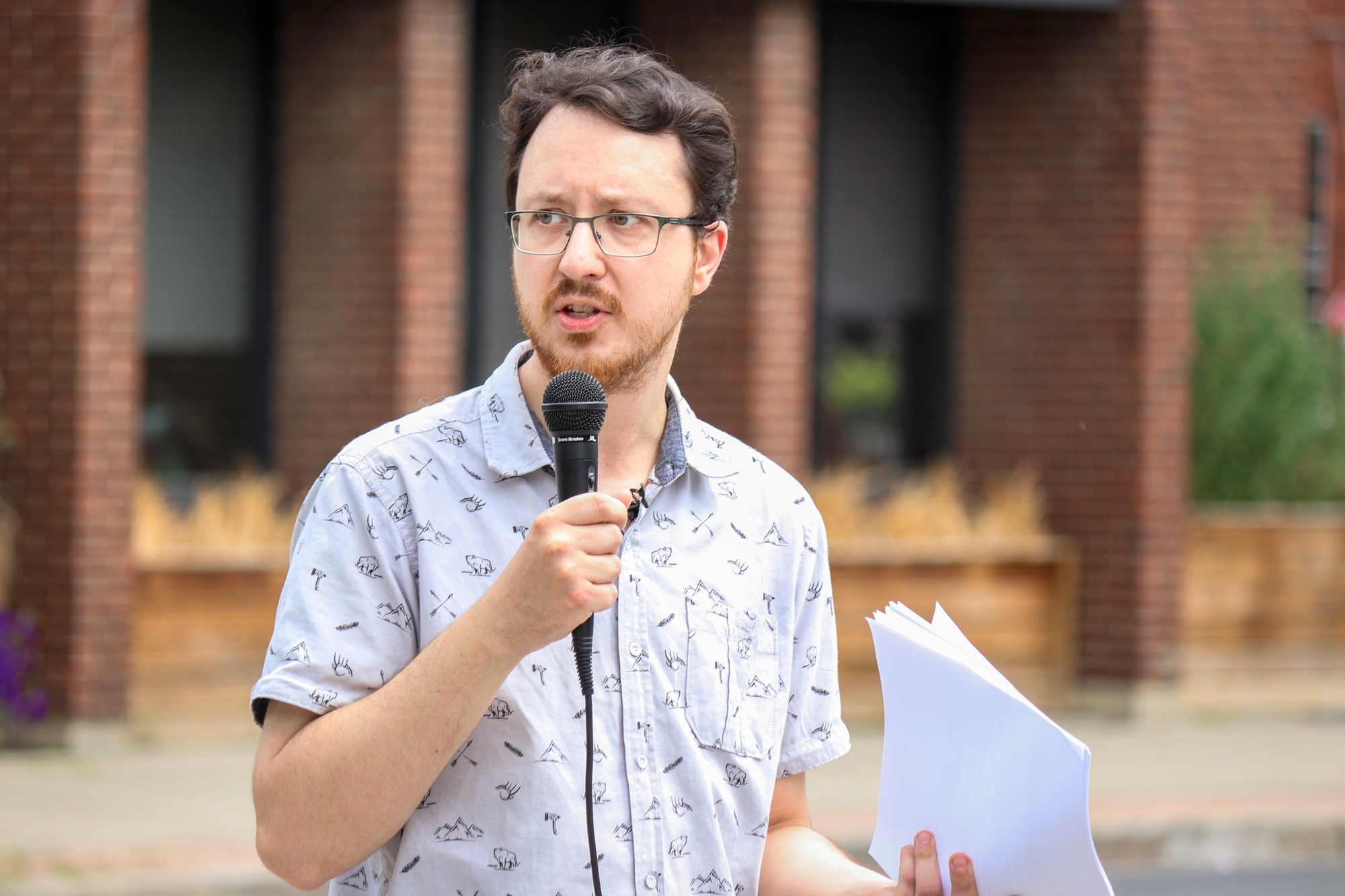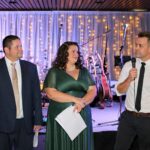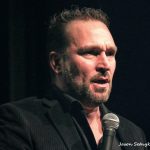
Interview and Photo by Jason Setnyk
Cornwall, Ontario – Nick Seebruch, a seasoned journalist with nearly a decade of experience, has embarked on a remarkable journey from local reporting to national prominence. His dedication to storytelling has not only shaped his career but also amplified his impact on Canadian media.
Seebruch’s journalistic journey commenced as he stepped out of school and into the role of Editor at the Cornwall Seaway News, where he would spend six formative years. During this time, he immersed himself in telling the stories of the local community, developing a deep-seated appreciation for the people, organizations, and issues that define Cornwall.
His tenure at the Cornwall Seaway News allowed him to forge a strong connection with the community, highlighting the stories of those who worked, volunteered, and lived in the area. This experience instilled in him the importance of grassroots reporting and community engagement, setting the stage for his future endeavors.
Now, Seebruch holds the prestigious position of Editor at rabble.ca, a nationally recognized progressive news website. Founded in 2001, rabble was at the forefront of the digital news revolution in Canada, being one of the country’s pioneering online-only news platforms.
At rabble.ca, Nick Seebruch has successfully transitioned his passion for storytelling from a local to a national level. He leads a diverse team of more than two dozen columnists and staff writers, all driven by a shared commitment to progressive journalism. Together, they tackle a wide range of critical issues, including labor, environmental concerns, 2SLGBTQIA+ matters, Indigenous rights, feminism, and more.
Five Questions with The Seeker
1 – Can you tell us about your background and how you got started in journalism? What motivated you to pursue a career in this field?
“After finishing my Bachelor’s degree, I wasn’t sure where I wanted to land for a career. I had always enjoyed writing and I had always watched the news from a very young age. Also, I was never really interested in doing work solely for the sake of making money, or for that matter, making money for someone else; I wanted to do something that I felt was for the public good. I was taking a few random classes at Concordia University at the time and I knew they had one of the best hands-on practical journalism graduate programs in the country, so I decided to give that a try. I stuck with it, and here I am.”
2 – What are some of the most memorable or impactful stories you’ve covered in your career, and what made them stand out to you?
“There are definitely a few. I think I was the first journalist on the scene at the fire that burned down the old Poirier Furniture site on Montreal Rd. in 2018. I remember seeing the smoke from downtown, the heat coming from the burning buildings when I was on the scene, and just the sheer number of people who were out in the street watching the firefighters do their work. Also, of course, COVID was another news story that stands out to me. The pandemic changed many things, probably forever, and something that stood out to me then was the importance of professional journalism, especially with all of the misinformation that was being pushed out there. More recently I’ve had the privilege to be at some historic moments and events this year, including U.S. President Joe Biden’s visit to Ottawa this past March and I was in Olivia Chow’s headquarters when she was elected Mayor of Toronto this summer.”
3 – Journalism can be a challenging profession, especially in today’s media landscape. How do you maintain your passion and commitment to the field amid these challenges?
“Journalism is a public good, and is an important part of a healthy democracy. There have been studies done in the U.S. that show that when a community loses its local newspaper that taxes go up and voter turnout goes down. It is harder than ever to make a living as a journalist, but I am fortunate enough to be able to do that and I want to keep on doing it for as long as I can because as I said, I believe it is a public good. Also, it is to me, one of the best jobs someone can have if they like meeting new people, learning new things and gaining unique experiences. What other job essentially lets you go on regular field trips as an adult and write a report on it?”
4 – In the age of “fake news” and misinformation, how do you navigate the responsibility of reporting unbiased and credible information to your readers?
“I’ll start by saying that the term “fake news” is a new term for something that’s been around a long time. Fake news is propaganda. Politicians who bash legitimate news as being fake do so because they have a short-term advantage they feel they can gain by doing so. At best, these politicians are saying this so that they can avoid accountability, and keep their voters uninformed about the negative impacts of their policies and at worst do not believe that a healthy democracy is to their advantage. As a journalist, to separate yourself from fake news takes real work. You don’t know everything as a journalist, so you have to do a lot of research, and find well-vetted experts who are respected by their peers who can educate you and comment on important issues. You have to have integrity. If you publish an error you must issue a correction. Finally, you have to remain objective. There’s a big difference between being “balanced” and objective. Balance can sometimes create false equivalency between two positions and give credit to conspiracy theories. Being objective is recognizing that something is an important and major news story even if it goes against your personal views.”
5 – How do you cultivate sources and build relationships to gain access to exclusive information or interviews?
“Journalism is a broad tent, and there are many kinds of journalism and many kinds of journalists who all do things their own way. To me, the most important way to build relationships with sources is to have empathy. This doesn’t mean that you should become biased in a source’s favour, but showing them empathy is very important in building trust. Even someone who has done something horrible or seemingly corrupt probably doesn’t see themselves that way, and it is important to understand that. You need to convince a source that you understand their perspective before they will be willing to share their story with you. It is also important to have integrity and professionalism. Do what you say you will do. Represent sources accurately in your stories, and they’ll be open to speaking with you again.”











